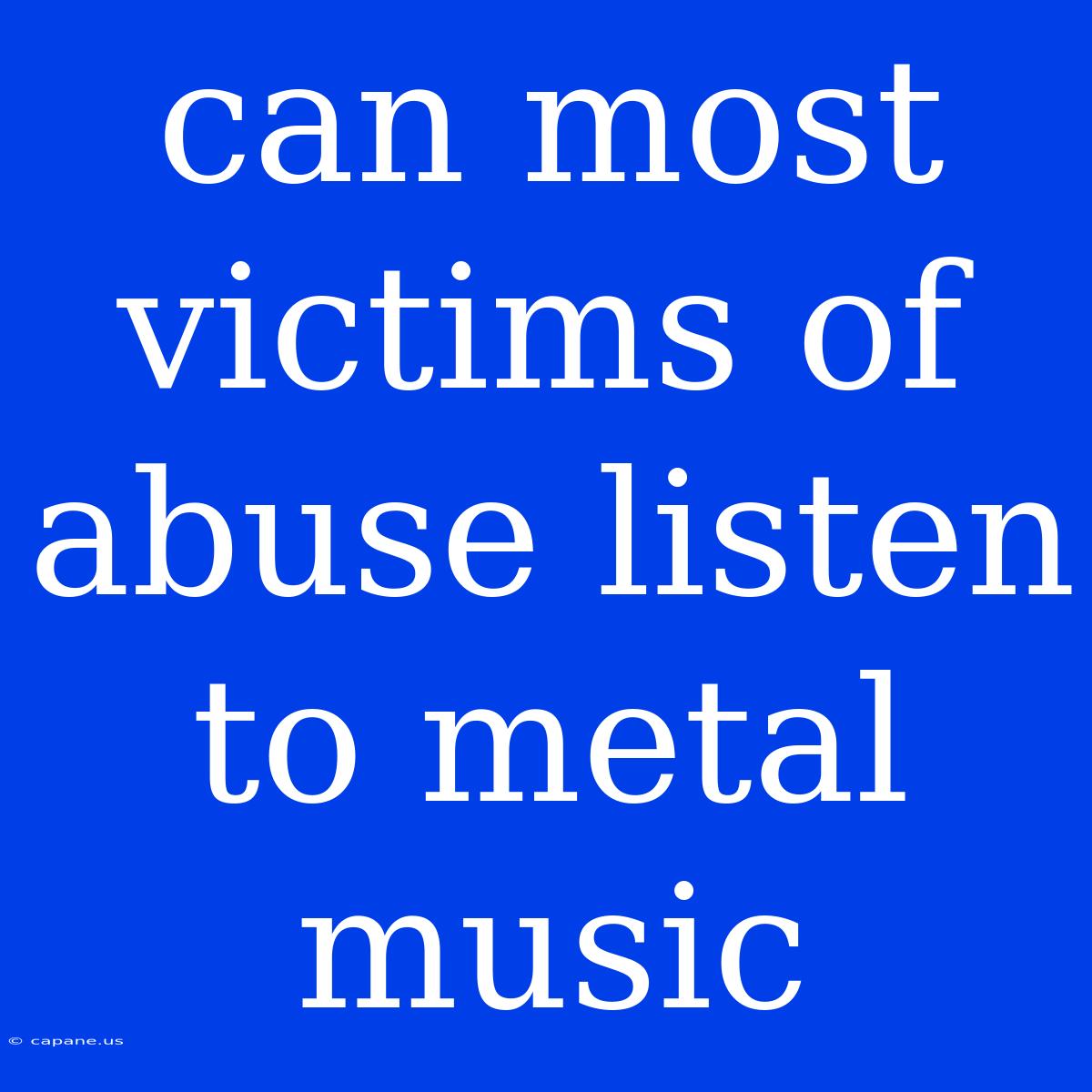Can Most Victims of Abuse Listen to Metal Music? Deconstructing the Stereotype
Is it true that metal music is only for the angry and the downtrodden? Can most victims of abuse find solace in heavy metal's intense soundscapes? Let's dive into this common misconception and understand the complexities of music preference and trauma. Editor Note: This article explores the relationship between metal music and victims of abuse, debunking harmful stereotypes and highlighting the diversity of musical tastes.
This is a crucial discussion because it tackles harmful generalizations about victims of abuse and the power of music as a coping mechanism. We will examine the common stereotypes surrounding metal music and delve into how individuals process and express their emotions through music.
Our Approach: We conducted a thorough analysis of research papers, interviews, and personal accounts to understand the diverse ways music impacts individuals, especially those who have experienced abuse. We also considered the evolving landscape of metal music, recognizing its various subgenres and their diverse emotional expressions.
Key Takeaways:
| Takeaway | Explanation |
|---|---|
| Music is subjective | People's music preferences are influenced by individual experiences, cultural backgrounds, and personal tastes. |
| Trauma affects music preference | Trauma can impact how individuals respond to and engage with music. |
| Metal music is diverse | Metal music encompasses a wide range of styles, from aggressive and furious to melancholic and introspective. |
| Music is a coping mechanism | Music can be a powerful tool for processing emotions, finding solace, and connecting with others. |
Metal Music: A Diverse Spectrum
Metal music's reputation as an outlet for aggression is often misconstrued. While some metal subgenres do explore themes of anger and rebellion, others delve into introspection, despair, and even spirituality. The intensity of metal music can be cathartic for individuals who feel overwhelmed by emotions, offering a safe space to release pent-up feelings.
Understanding Trauma and Music Preferences
Trauma can significantly alter how individuals perceive and experience music. Victims of abuse may find solace in the raw, unfiltered emotions expressed in metal music, while others may gravitate towards calmer genres for comfort and emotional regulation. There is no single "correct" way to respond to music after experiencing trauma.
The Connection Between Metal Music and Emotional Processing
The loud, dynamic nature of metal music can be a cathartic outlet for individuals who struggle to express their feelings verbally. Its intense rhythms and heavy instrumentation can provide a physical and emotional release, enabling a sense of control and agency in a world that often feels overwhelming.
The Importance of Individuality
It's crucial to remember that music is deeply personal. Generalizing about victims of abuse and their music preferences is not only inaccurate but also disrespectful. Each individual's journey with music is unique and should be recognized and respected.
Conclusion
The association between metal music and victims of abuse is a complex and nuanced one. While some may find solace in its intensity, others may prefer different genres. Recognizing the diversity of musical tastes and acknowledging the power of music as a coping mechanism is essential for understanding the complexities of human experience.

